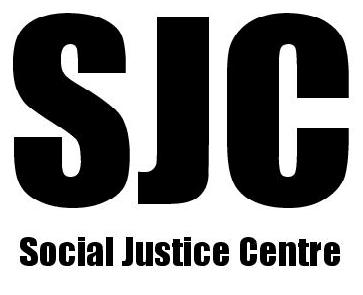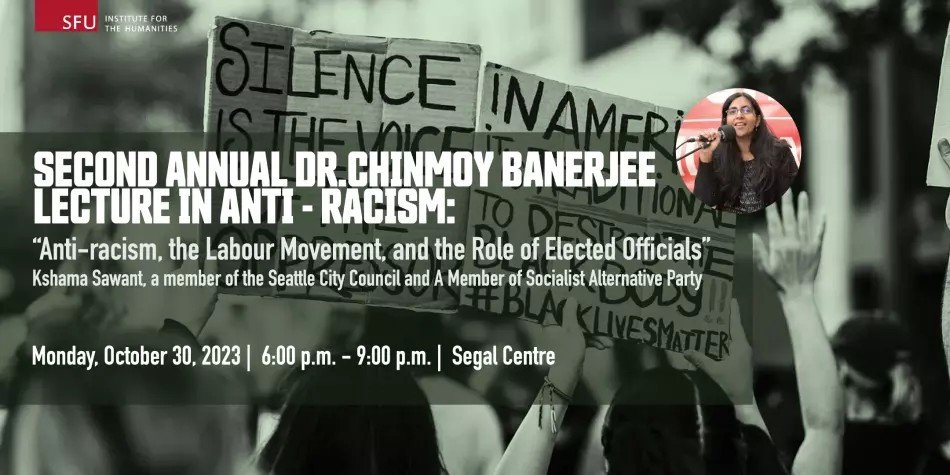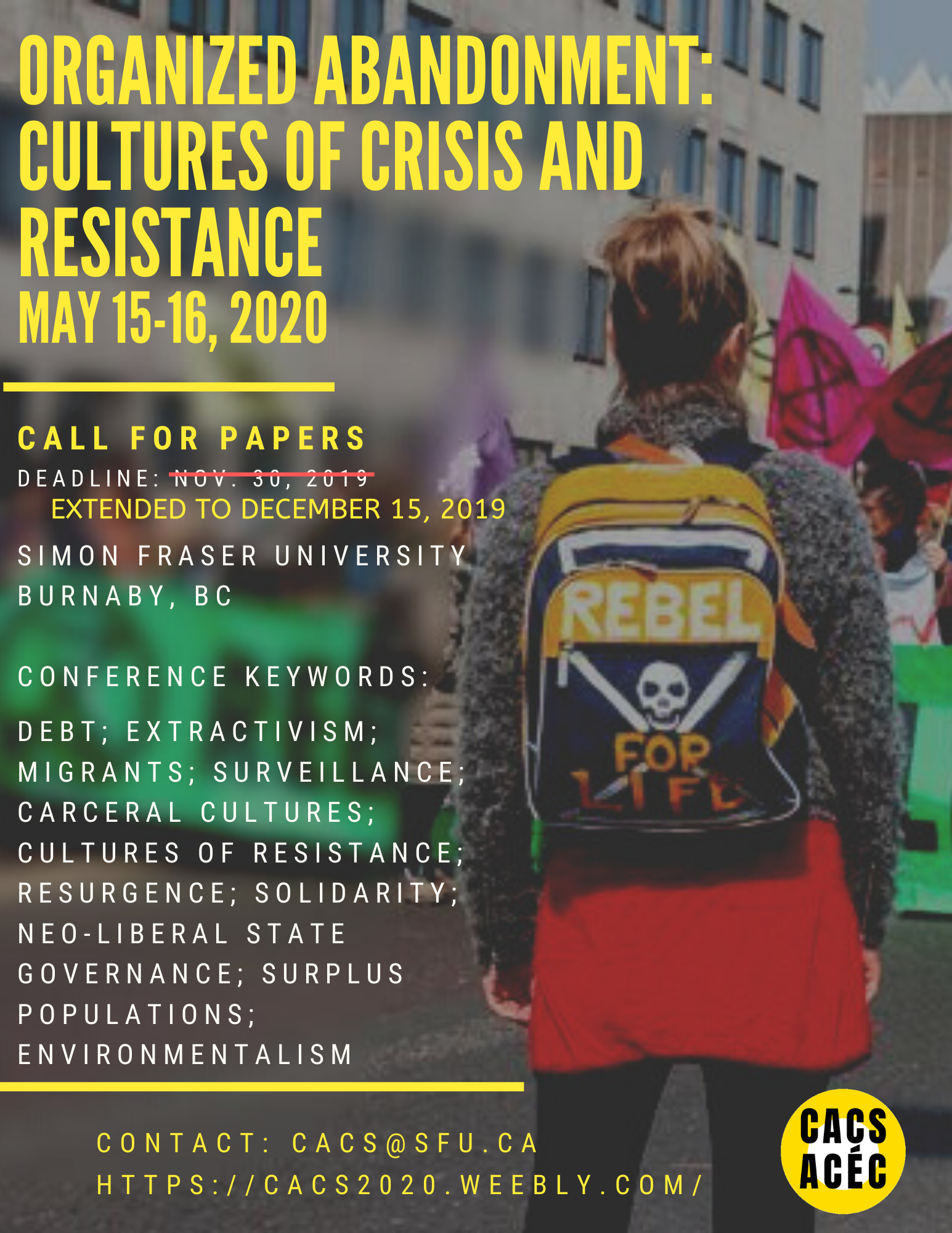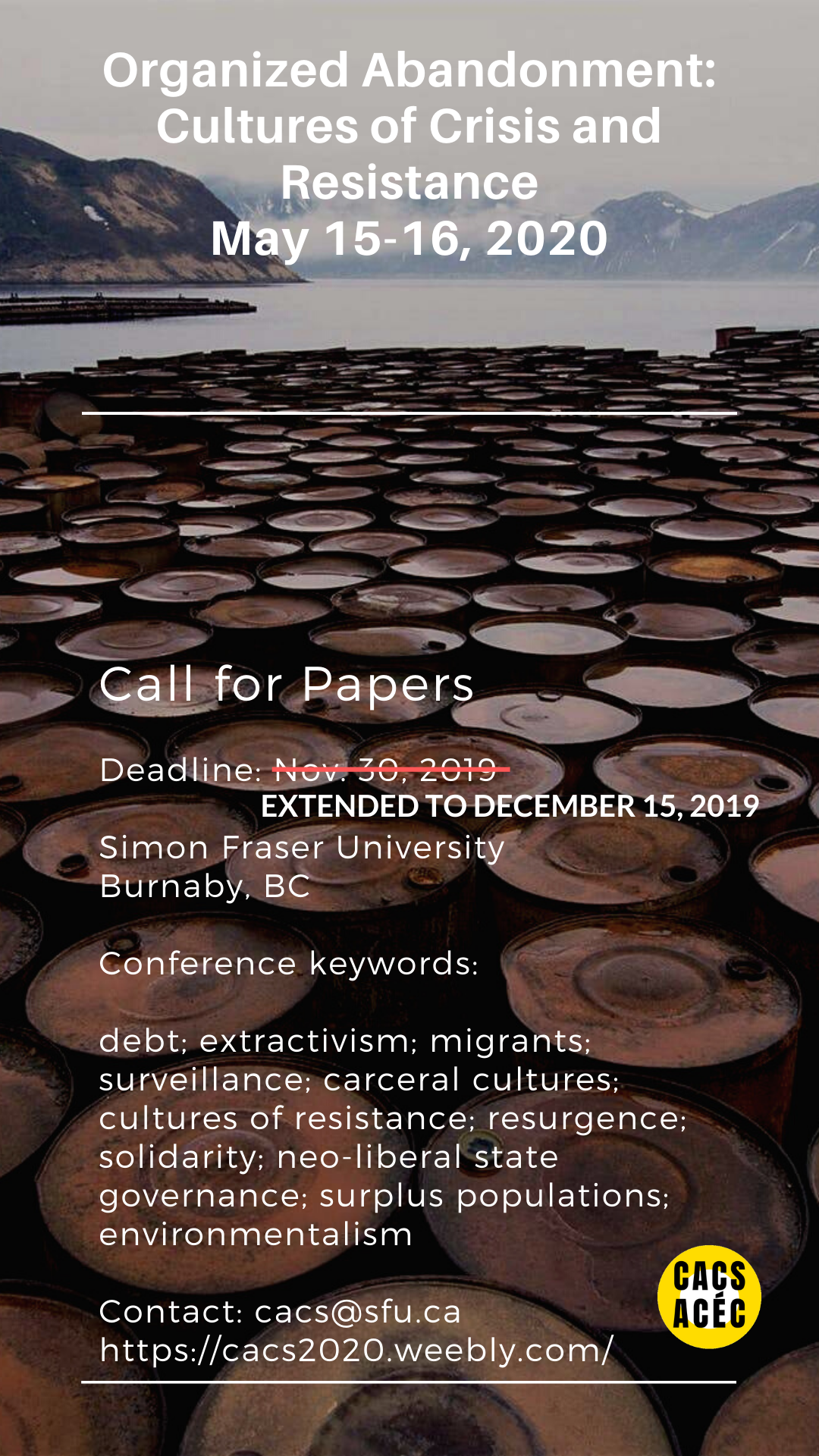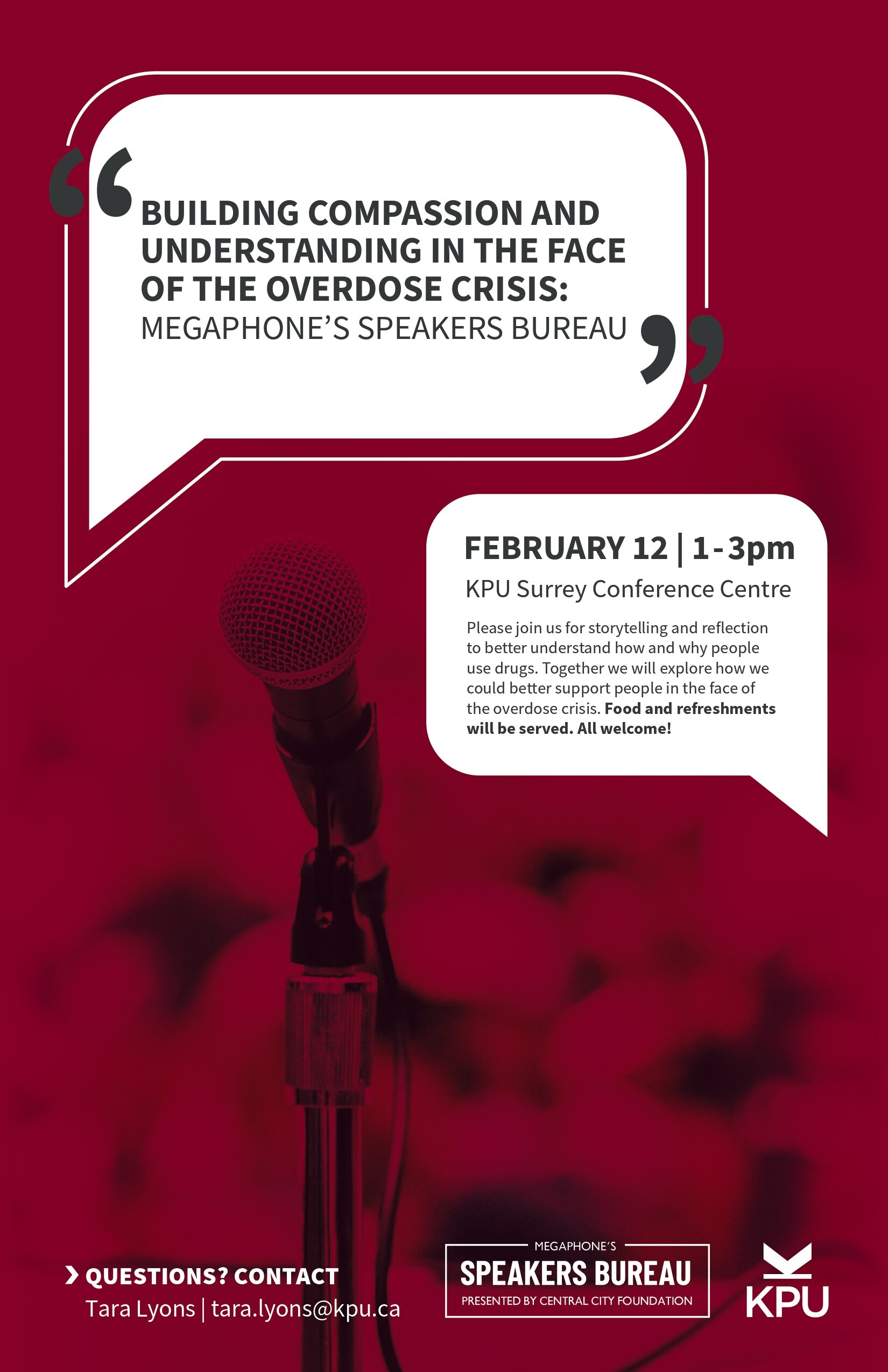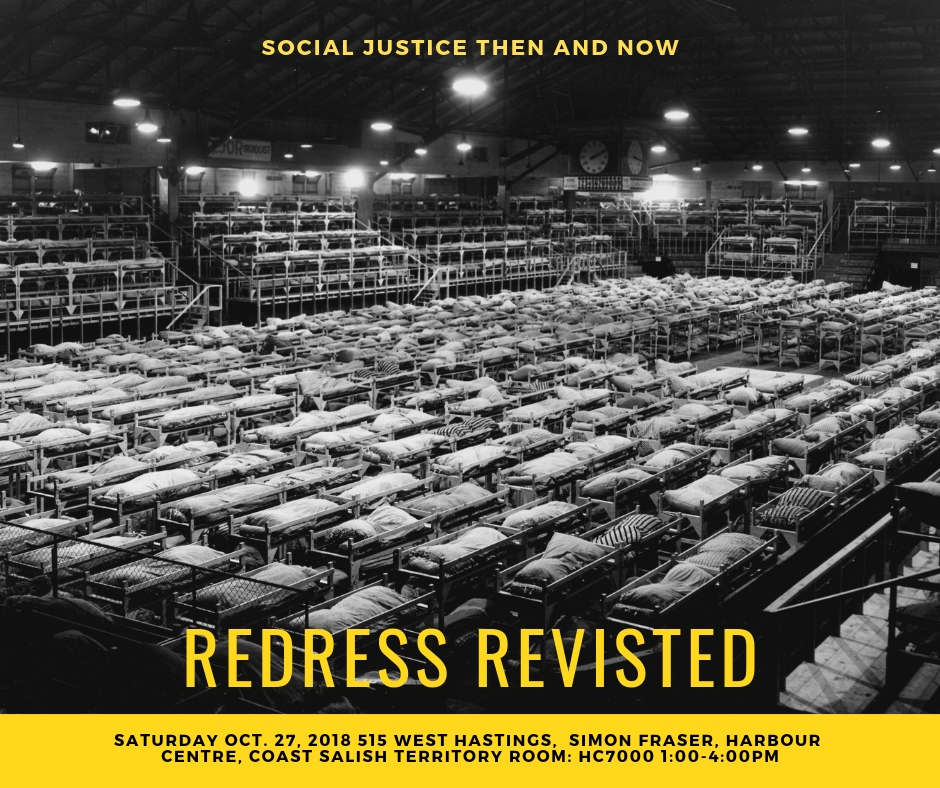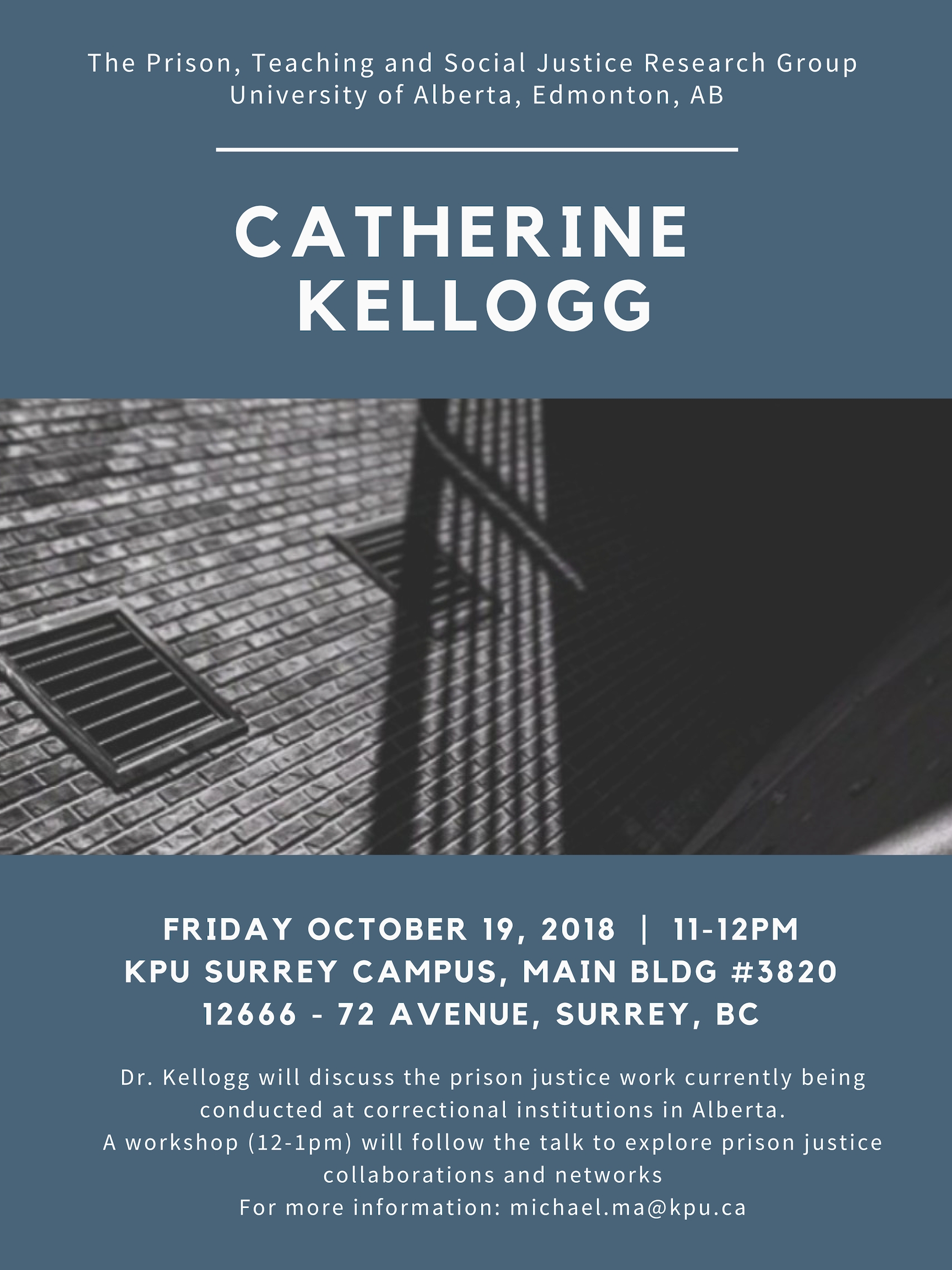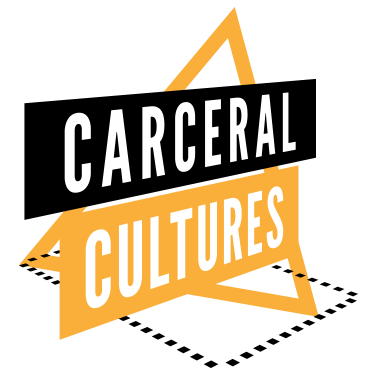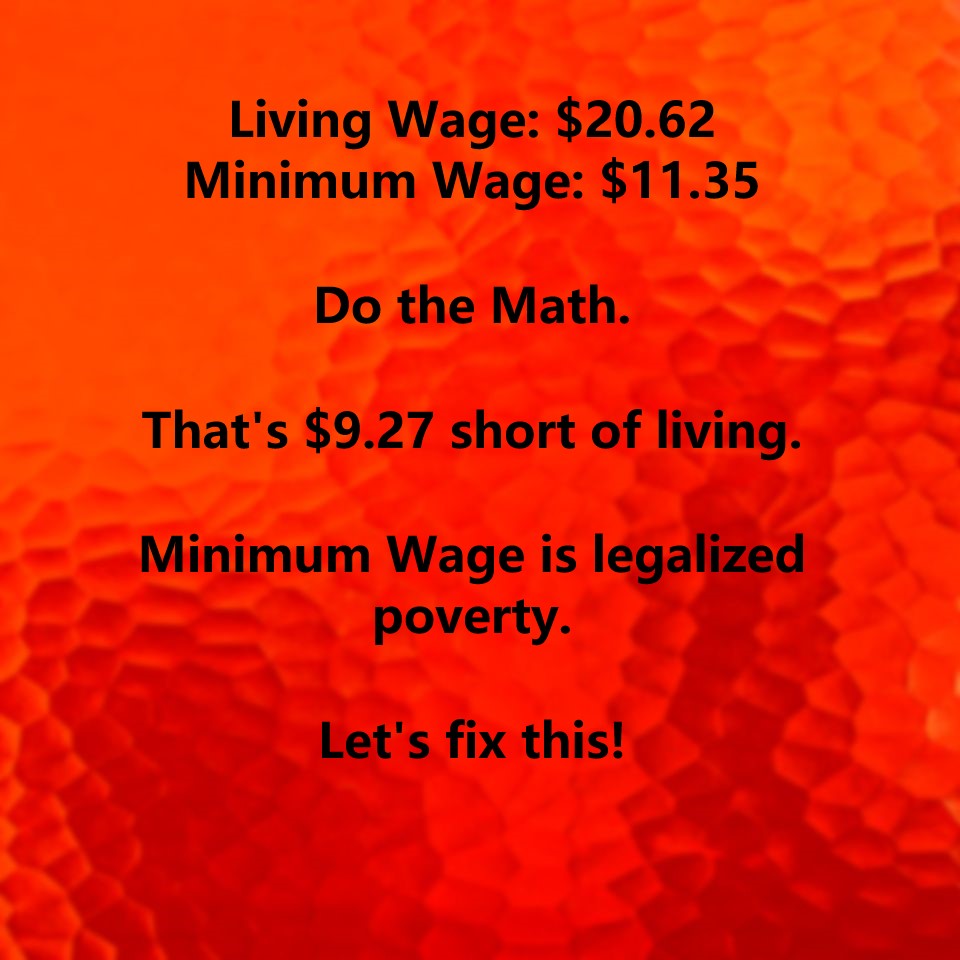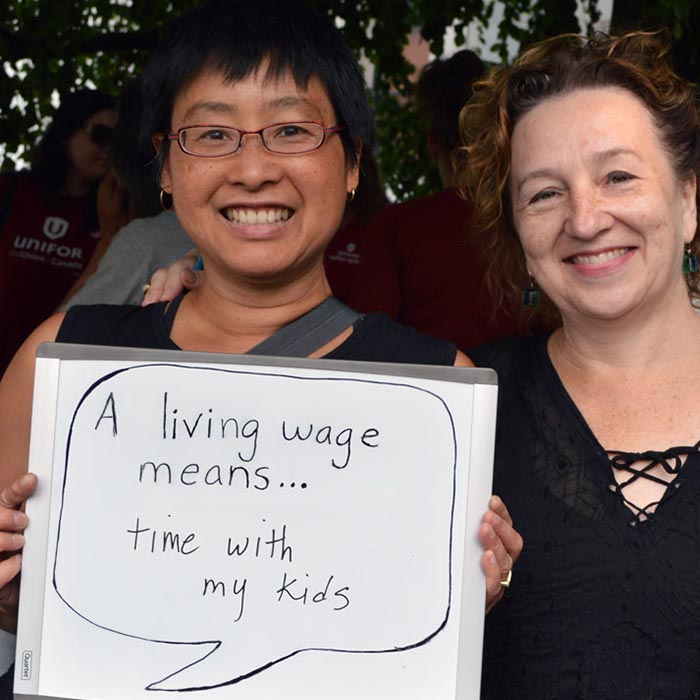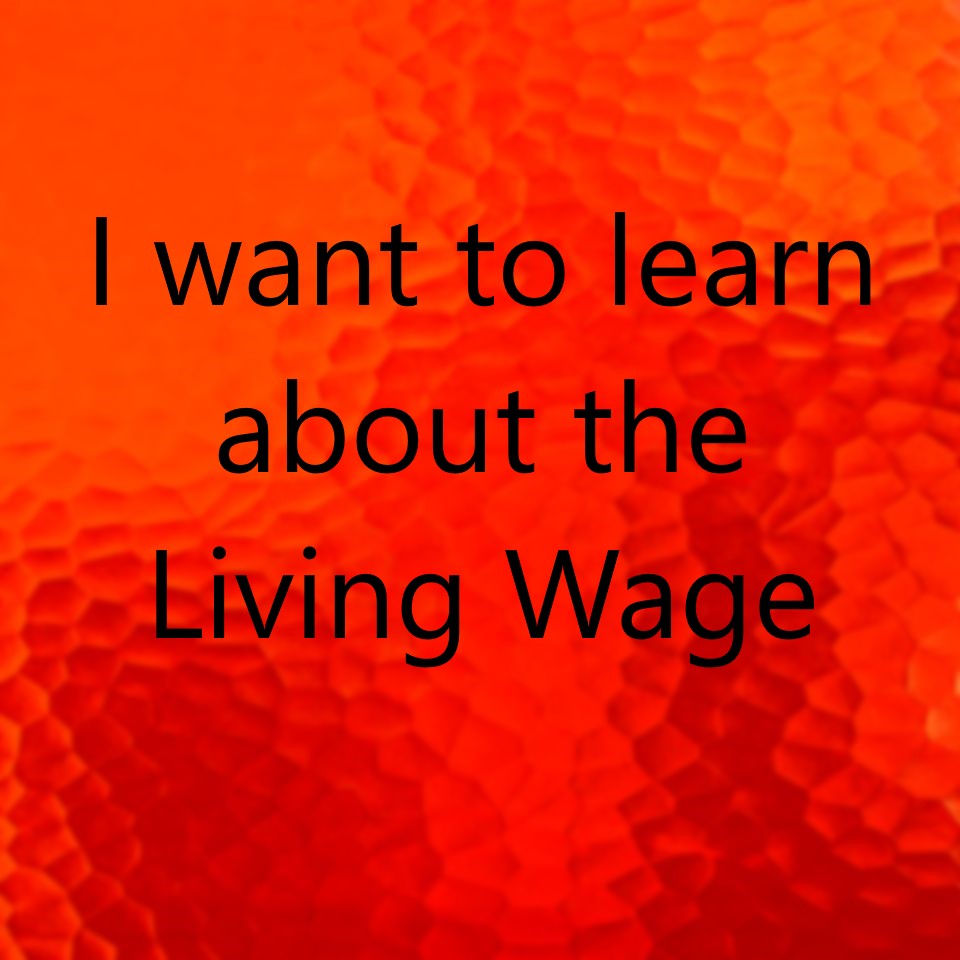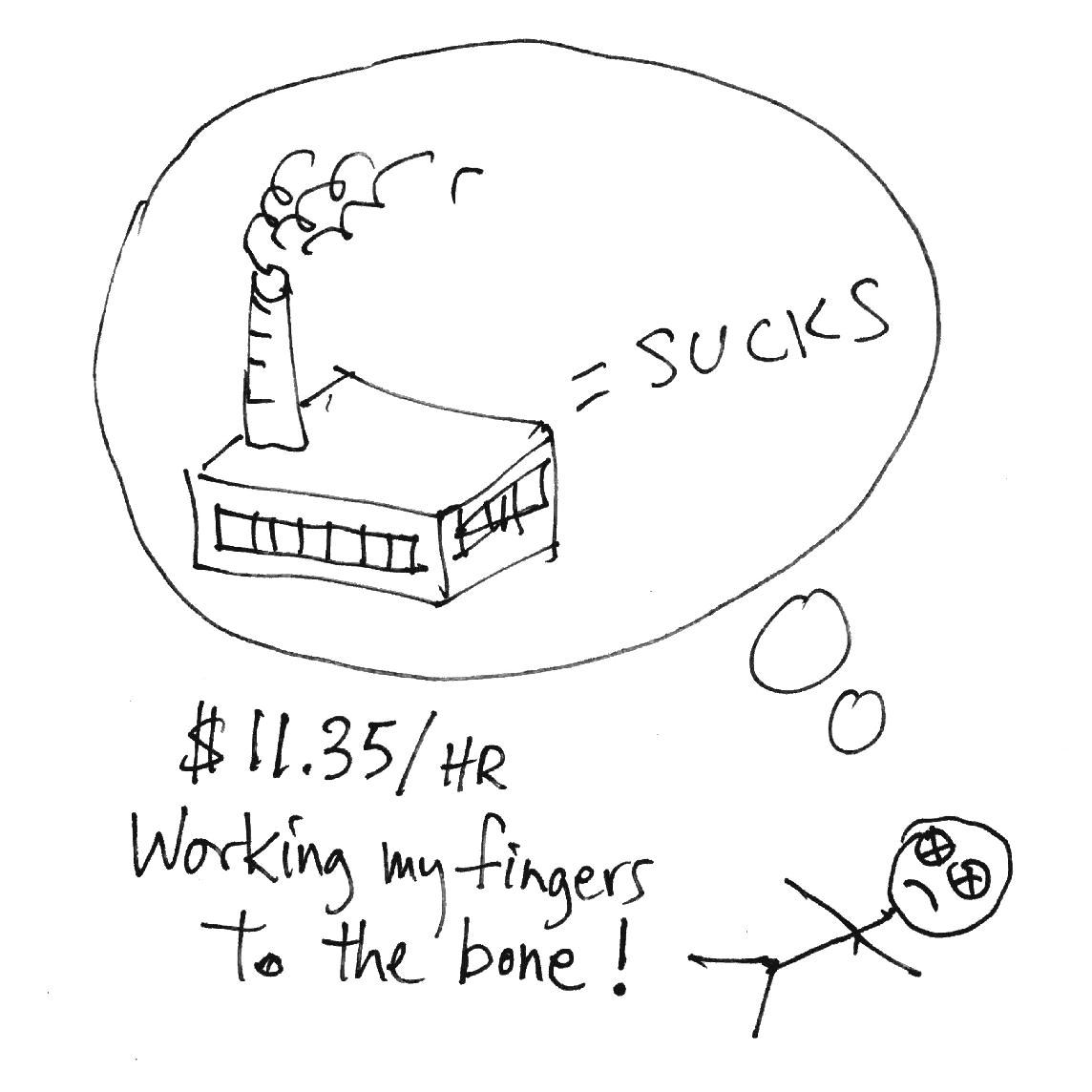Second Annual Dr.Chinmoy Banerjee Lecture in Anti-Racism: “Anti Racism, the Labour Movement, and the role of Elected Officials”
Second Annual Dr.Chinmoy Banerjee Lecture in Anti-Racism: “Anti Racism, the Labour Movement, and the role of Elected Officials”
MONDAY, OCTOBER 30, 2023
Segal Centre 1420 -1430, SFU, Harbour Centre
Lectures
Presented by Institute for the Humanities
Speaker: Kshama Sawant, Seattle City Councillor
Roundtable to follow with Michal Ma, Yameena Zaidi (Teaching Support Staff Union), moderated by Samir Gandesha
The labour movement was built internationally with the idea of an injury to one being an injury to all. Building unions and fighting collectively for workers’ rights has been integral to the fight for a just society throughout the existence of capitalism. This has required the rank and file of the labour movement to push back against racial, gender, ethnic, and national divisions. It has required understanding that the fight against oppression is important in itself, and that oppression in any form is poisonous to the solidarity that is indispensable to successfully fight back against the capitalist class and the elite to win victories for the rest of us.
Racism, and anti-Black racism in particular, has been a prized tool of the capitalist class in the United States and North America in their efforts to divide working people and exploit them. In fighting back, radical Black, white, and immigrant workers and socialists played a decisive role in educating their fellow workers and the wider working class, putting forward strategies based in class-struggle unionism, and demonstrating the self-sacrifice needed for such movements.
Today, you can easily find many elected officials, especially in supposedly progressive parties, who say that they are against racism and sexism and other forms of oppression. However, “progressive” politicians use their platform neither to expose the overtly corporate and right-wing elected officials nor to call for and help build grassroots rallies or actions that can activate ordinary working people. Instead, they will do the bidding of big business, defend the status quo, and become strike-breakers. The entire multiracial, multi-gender working class needs leaders who will adopt a fighting approach — we need politicians who will fight alongside the working class.
SPEAKER
Kshama Sawant is the first elected socialist in Seattle in nearly a century. She was first elected to the Seattle City Council in 2013, running openly as a member of Socialist Alternative, long before Bernie Sanders and AOC were household names. She is currently the longest-serving sitting Seattle Councilmember. Kshama only accepts the average worker’s wage, and after taxes, donates the rest of her six-figure City Council salary to a solidarity fund for worker organizing and social movements.
An outspoken socialist who has taken no corporate campaign money, Kshama has won four elections defeating Seattle’s elite, corporate landlords, and some of the most powerful corporations in the world like Amazon, who have spent millions of dollars to try and unseat her. Winning these elections also meant overcoming the opposition of the city’s Democratic Party, who have attempted to defeat Kshama by running both big-business-backed and self-described “progressive” candidates against her. Socialist Alternative and Kshama have consistently clarified that despite their differences, both Democrats and Republicans serve the wealthy, and that working people need a new party of their own.
Socialist Alternative and Kshama have used her elected office to help lead movements that have won historic working-class victories. Alongside rank-and-file union members and other workers, they made Seattle the first major city to gain the $15/hour minimum wage in 2014, and won the Amazon Tax in 2020 on big business to fund affordable housing and Green New Deal programs.
As a socialist who herself has been a rank-and-file union member, Kshama has unwaveringly used her office to fight alongside rank-and-file union members and workers fighting for a union. Alongside Starbucks workers, Kshama’s office fought to win a unanimous City Council resolution in 2022 in support of the Starbucks union drive.
Kshama was the lone Councilmember who vocally stood with Seattle’s grocery workers fighting to keep their $4/hour pandemic hazard pay, against repeated attempts by Democrats to repeal it while themselves staying safe at home over Zoom meetings. Shamefully, it was a self-described “Labor Democrat” and Latina Councilmember Teresa Mosqueda who originally sponsored legislation to repeal this grocery worker hazard pay. As Kshama said during her vote, “Today is the seventh time the Democrats have put legislation to end hazard pay on the Council’s agenda since July 27 of last year… Compare this to how, in the last forty years, the Washington State Democrats have not once put ending the statewide ban on rent control up for a vote.”
By mobilizing renters and union members, Kshama’s office has spearheaded a whole series of landmark renters’ rights, such as requiring a six-month notice for rent increases, mandating landlords to pay relocation assistance of three months’ rent upon forcing tenants to leave due to rent increases over 10 percent, a ban on evictions in winter months, and a ban on evictions of schoolchildren and public school workers during the school year.
Her office has a long track record of building united working-class struggle against discrimination and oppression: replacing Seattle’s Columbus Day with Indigenous People’s Day; making Seattle the first-ever jurisdiction outside South Asia with a ban on caste discrimination; making Seattle and abortion sanctuary and fully funding abortion needs for anyone in the city, in the wake of the U.S. Supreme Court’s repeal of Roe v. Wade; banning police use of chokeholds, chemical weapons, and other so-called “crowd control” devices, a victory won in the midst of the 2020 Black Lives Matter movement.
Nobody in Seattle has caused more headaches for big business, the billionaire class, and the political establishment over the past ten years than Kshama Sawant, Socialist Alternative, and the working-people’s movements they have built. Referring to the successful mobilization of rank-and-file renters, longtime corporate landlord lobbyist Jamie Durkan said that every dollar that corporate landlords had spent over the last decade lobbying the Seattle City Council was wasted because of “Sawant’s army.”
Every single one of the victories has been won by Socialist Alternative and Kshama’s office mobilizing rank-and-file union members and progressive labor unions, non-unionized workers, renters, and community members. They would not have been won by having illusions in the Democratic Party, which while is different from the openly anti-worker and right-wing Republican Party, is very hostile to working-class movements. “I wear the badge of socialist with honor,” she declared in her January 2014 inauguration speech. She promised at that time: “There will be no backroom deals with corporations or their political servants. There will be no rotten sell-out of the people I represent.” Now, after a decade in office, instead of running for reelection she is helping launch Workers Strike Back, an independent movement organizing in workplaces and on the streets against the bosses and their political servants.Michael Ma Bio
Michael C.K. Ma is a faculty member in the Department of Criminology at Kwantlen Polytechnic University, British Columbia. He works in the area of social justice, community advocacy, anti-racism, and harm reduction. His current research is in the area of drug use. He is a founding member of The Social Justice Centre, www.thesocialjusticecentre.org, and a current member of the Vancouver District Labour Council. In the past he was very active with the Chinese Canadian National Council - Toronto Chapter and the Metro Network for Social Justice. His academic training is in sculpture, art history, and social/political thought. Michael is a member of the West Coast Coalition Against Racism (WCCAR).
Yameena Zaidi is an organizer with the Teaching Support Staff Union and the Contract Worker Justice coalition fighting to end the outsourcing of food and cleaning services at SFU. As a Master’s student in the School of Communication, she studies the evolving strategies of gig workers’ unions in India.
The lecture is co-sponsored by Dr.Hari Sharma Foundation, the West Coast Coalition Against Racism (WCCAR) and South Asian Network for Secularism and Democracy (SANSAD), and the Vancouver and District Labour Council
